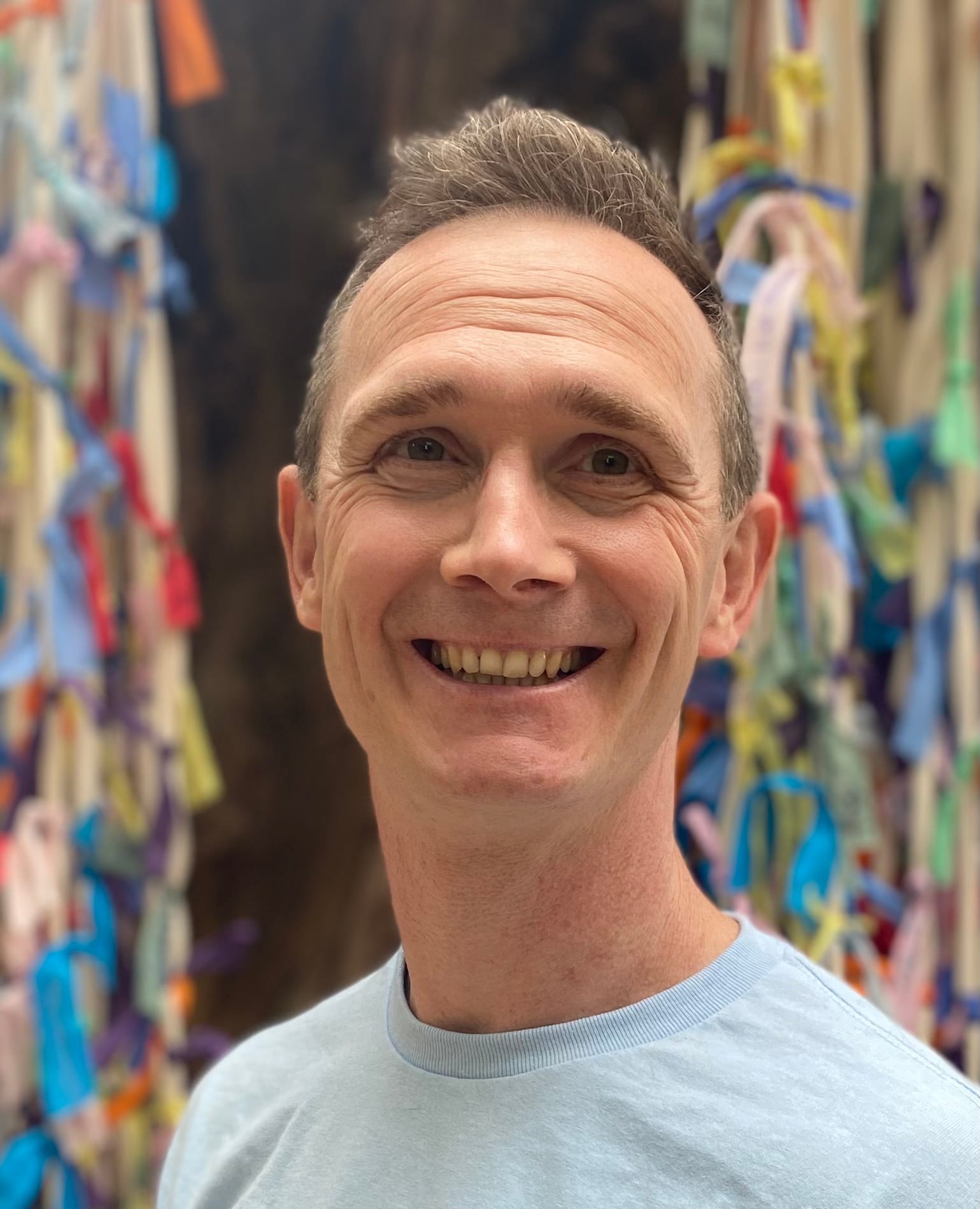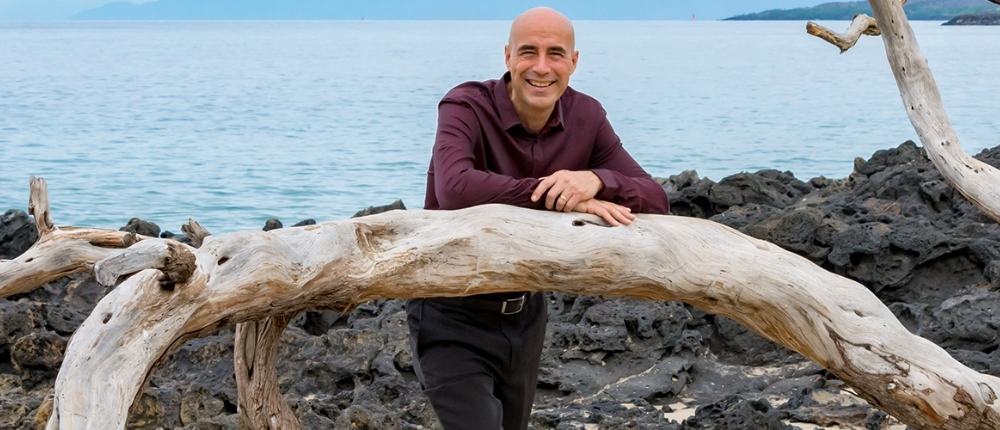
This website uses cookies to improve your experience. We'll assume you're ok with this, but you can opt-out if you wish. Read More
The Next Round: What happens after you change your drinking?

The way we think and respond to things has a huge impact on how we create change in our lives, and Jean-Francois Benoist is an expert on shifting thought patterns to overcome addiction. In this episode, we talk about mindset, and the four keys to thinking well about yourself. Benoist tells us how we can move away from using shame to motivate, and move toward a positive and empowered mindset.
Jean-Francois (J.F.) Benoist is an author and councillor specialising in addiction and relationship issues. We get stuck into some of the theories behind his book Addicted To The Monkey Mind, and find out how he helps people to rewire their behaviours and overcome addition.
He and his wife co-founded a Rehab Centre, a holistic approach skill-based programme in Hawaii, called The Exclusive Hawaii. He has also written a book called Addicted To The Monkey Mind, change the programming that sabotages your life. It’s based on real life experiences of severe addiction, and takes learnings from everything from eating disorders to drug and alcohol addiction. Benoist and his wife noted that most people suffer from dual diagnosis, having issues with depression with anxiety for example, some of them are diagnosed with bipolar. So they’ve developed something unique and trademarked their methodology, Experiencial Engagement Therapy. The foundation is that you can’t learn how to change mental health by just doing Cognitive Behavioural Therapy, we believe it has to go further than that. You have to go through experiences in order to create change.
Most of our thinking is conditioned and programmed. In Benoist’s book Addicted To The Monkey Mind, the reader follows two characters, Kevin and Elisabet. As you read you start to notice that 90% of the time, they are reacting in certain ways because of their conditioned thinking. This means that people develop a certain way of thinking that had to be adaptive to their environment. So whatever stress they were introduced to, they had to adapt to it, creating a particular way of thinking to help them with the situation. So we don’t always realise that when something happens in our lives, we’re triggered back to that thinking, and we’re not really in the present moment.
In this episode, Benoist helps us to understand why our brains respond the way that they do, and how we can harness this knowledge to create change. He explores themes of shame, anxiety, and the importance of connection and belonging. How can we rewire our brain by altering our focus away from the negative? Instead of thinking ‘I’m giving up drinking’, a more positive framework would be ‘I’m exploring a new world of drinks that happen to be alcohol-free’. That’s a far more positive and exciting mindset to be in.
Benoist shares with us four essentials pillars for healthy thoughts. The first is a sense of belonging. The second, a sense that your life matters, that you make an impact somehow. The third one is feeling connected with other people in a way that relates to the things you are passionate about. And the fourth one is connection with nature. We tend to motivate ourselves with shame, which is the opposite of those four, core ideas that we need in order to think well.
Check out the full episode for more insight into Jean-Francois Benoist’s methods for creating change and finding recovery and his Experiential Engagement Therapy work.
This website uses cookies to improve your experience. We'll assume you're ok with this, but you can opt-out if you wish. Read More
| Name | Domain | Purpose | Expiry | Type |
|---|---|---|---|---|
| wpl_user_preference | joinclubsoda.com | WP GDPR Cookie Consent Preferences. | 1 year | HTTP |
| PHPSESSID | www.tickettailor.com | PHP generic session cookie. | 55 years | HTTP |
| AWSALB | www.tickettailor.com | Amazon Web Services Load Balancer cookie. | 7 days | HTTP |
| YSC | youtube.com | YouTube session cookie. | 55 years | HTTP |
| Name | Domain | Purpose | Expiry | Type |
|---|---|---|---|---|
| VISITOR_INFO1_LIVE | youtube.com | YouTube cookie. | 6 months | HTTP |
| Name | Domain | Purpose | Expiry | Type |
|---|---|---|---|---|
| _ga | joinclubsoda.com | Google Universal Analytics long-time unique user tracking identifier. | 2 years | HTTP |
| sbjs_migrations | joinclubsoda.com | Sourcebuster tracking cookie | 55 years | HTTP |
| sbjs_current_add | joinclubsoda.com | Sourcebuster tracking cookie | 55 years | HTTP |
| sbjs_first_add | joinclubsoda.com | Sourcebuster tracking cookie | 55 years | HTTP |
| sbjs_current | joinclubsoda.com | Sourcebuster tracking cookie | 55 years | HTTP |
| sbjs_first | joinclubsoda.com | Sourcebuster tracking cookie | 55 years | HTTP |
| sbjs_udata | joinclubsoda.com | Sourcebuster tracking cookie | 55 years | HTTP |
| sbjs_session | joinclubsoda.com | SourceBuster Tracking session | Session | HTTP |
| Name | Domain | Purpose | Expiry | Type |
|---|---|---|---|---|
| mailchimp_landing_site | joinclubsoda.com | Mailchimp functional cookie | 28 days | HTTP |
| __cf_bm | tickettailor.com | Generic CloudFlare functional cookie. | Session | HTTP |
| NID | google.com | Google unique id for preferences. | 6 months | HTTP |
| Name | Domain | Purpose | Expiry | Type |
|---|---|---|---|---|
| _ga_10XZMT03ZM | joinclubsoda.com | --- | 2 years | --- |
| AWSALBCORS | www.tickettailor.com | --- | 7 days | --- |
| cf_clearance | tickettailor.com | --- | 1 year | --- |
| VISITOR_PRIVACY_METADATA | youtube.com | --- | 6 months | --- |
Join Club Soda for 10% off your first order of drinks for UK delivery. Plus get our latest news and special offers for members to choose better drinks, change your drinking and connect with others.
If you get an error message with this form, you can also sign up at eepurl.com/dl5hPn